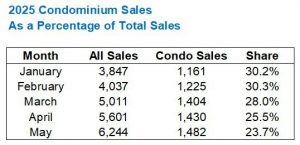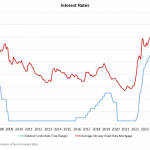How to Buy a House: A Step-by-Step Guide
Buying a home is a big milestone in anyone’s life, often representing one of the largest financial commitments that individuals will make. Understanding the home buying process is crucial, especially for first-time buyers, as it can be overwhelming and complex. This article provides a comprehensive step-by-step guide for how to buy a home, whether you’re a first-time homebuyer or a repeat buyer.

Step 1: Assessing Your Financial Readiness
Evaluating Your Credit Score
If you plan on obtaining a mortgage, your credit score plays a pivotal role in home buying, as it directly impacts your ability to secure a mortgage and the interest rate you will receive. Lenders typically consider a credit score above 620 as favorable, but higher scores can yield better terms. Start by obtaining a copy of your credit report, reviewing it for errors, and addressing any issues that could be dragging your score down. However, before taking steps like paying off debts, consult with your loan officer. Sometimes, using your funds elsewhere may be more beneficial than reducing your debt balance.
Determining Your Budget
Once you have a clear understanding of your credit score, the next step is to determine your budget. You’ll want to analyze your financial situation, including income, savings, and monthly expenses.
How much are you comfortable spending every month on housing? Be sure to include not only the mortgage payment, but also property taxes, homeowners insurance, HOA fees, and any other expenses that may increase, such as utilities. For example, if you’re currently paying $125 a month for electricity in a small condo, don’t expect that same rate in a larger, four-bedroom single-family home.
A common rule of thumb is that your housing expenses should not exceed 28% of your gross monthly income.
Step 2: Are You Mortgage Ready?
Connect with a Lender
The next step is to connect with a loan officer to determine if you can qualify for a mortgage. Just because you’re comfortable with a potential mortgage payment doesn’t automatically mean you’ll qualify for a loan. Mortgage approval involves a detailed review of your financial profile, not just your income.
There are many types of lenders to choose from, including mortgage brokers, banks, and credit unions. If you’re unsure where to start, asking for a referral from a trusted real estate agent, friend, or family member can help you find a reputable loan officer who fits your needs.
 Get Pre-Approved
Get Pre-Approved
Once you select a loan officer, you’ll want to get pre-approved for a mortgage. You’ll need to provide documentation such as recent pay stubs, bank statements, tax returns, and identification. Your lender will evaluate this information to determine the different loan programs you qualify for, in addition to the loan amount.
There are several types of mortgages to consider, including fixed-rate, adjustable-rate, and government-backed loans. Your loan officer will explain the pros and cons of each option you qualify for, helping you choose the best fit for your financial situation. Once a loan program is selected, they’ll provide a loan estimate outlining your expected down payment, estimated closing costs, and projected monthly mortgage payment.
Keep in mind, the estimated payment may or may not include property taxes and homeowners insurance, and if it does, those figures are only rough estimates, as actual amounts will vary based on the specific property.
Also, remember, a pre-approval is not a final loan commitment. However, it’s one of the most important steps in buying a home, and a pre-approval letter is something every single seller will want to see.
Step 3: Finding a Real Estate Agent
Role of a Real Estate Agent
A knowledgeable real estate agent can be an invaluable asset during your home-buying process. They can provide insights into market trends, educate you about the area and different neighborhoods, help you find properties that meet your criteria, and negotiate on your behalf. Their expertise can save you time and money, making them an important part of your home-buying team.
How to Choose the Right Agent
When selecting a real estate agent, look for someone with a proven track record in your desired area, positive reviews, and strong communication skills. Interview multiple agents to gauge their compatibility with your needs and preferences. Don’t hesitate to ask about an agent’s experience, but don’t assume that someone who sells 100 homes a year is automatically the best fit. In some cases, an agent who sells a dozen homes annually, but offers personalized, start-to-finish support, might be a better match for your needs.
Wondering how to buy a house? This step-by-step guide walks you through the entire process from start to finish. #realestate #homebuying
Step 4: House Hunting
Creating a Wish List
Before jumping into your car and looking at homes, you’ll want to create a wish list of features you desire in a home. Consider aspects such as the number of bedrooms, bathrooms, yard size, and proximity to schools and amenities. This list will help narrow your options and guide your real estate agent in finding suitable properties.
Reaching Neighborhoods
Location plays a major role when buying a home, hence the popular saying, “location, location, location.” You can always update a home’s interior and exterior, but you can never change its location. Research different neighborhoods to understand their culture, amenities, and property values. Factors to consider include crime rates, school quality, and the availability of parks and public transport. Even if you don’t need schools, they play a huge role in resale value. Visiting neighborhoods at various times can also provide insight into daily life and community interactions.
Touring Homes
Once you’ve compiled a list of potential homes, it’s time to start touring them. If you’re still unsure about which area suits you best, visiting open houses on the weekend can be a helpful way to narrow it down. Seeing homes in person gives you a better sense of the space and can help you picture your life there. Be sure to take notes and photos during each visit, these details will make it easier to compare properties later.
Step 5: Making an Offer
Understanding the Market Conditions
Before making an offer, evaluate the current real estate market conditions. In a seller’s market, where demand exceeds supply, you may need to act quickly and offer above the asking price. Conversely, in a buyer’s market, you might have more leverage to negotiate a lower price. This is information your real estate agent will be able to provide and guide you.
 Components of an Offer
Components of an Offer
Your purchase offer should include the proposed price, deposit amount, contingencies, contingency periods, and your intended closing date. Common contingencies may cover home inspections, financing, and appraisal conditions. Keep in mind, there is more to an offer than the purchase price, these other terms are just as important and sometimes more important to a home seller.
Negotiation Strategies
Negotiations are often part of the home-buying process. So be prepared to negotiate not just the price, but also secondary terms such as inspection periods, repairs, or closing costs. Maintain open communication with your agent, who can offer valuable negotiation strategies based on their experience and knowledge of the market.
Step 6: Home Inspections & Appraisals
Once you’re under contract, two of the biggest hurdles in the homebuying process are the home inspection and the appraisal.
Importance of Home Inspections A home inspection is a vital part of the buying process, as it uncovers potential issues that may not be visible during initial viewings. Hiring a qualified and licensed home inspector can help identify problems such as structural damage, electrical issues, or plumbing concerns. This information will help you make informed decisions, like negotiating repairs, or even deciding to walk away from the deal.
What to Expect During an Inspection
During the home inspection, the inspector will evaluate the property’s major systems, including HVAC, plumbing, electrical, and roof. The process usually takes a few hours. You don’t have to be present for the entire inspection, but attending at the end will allow you to ask the home inspector questions and gain insights into the property’s condition. After the inspection, you will receive a detailed report outlining the inspector’s findings.
Understanding Appraisals
An appraisal is a professional assessment of a property’s value, often required by lenders before approving a mortgage. The appraiser will consider various factors, including the property’s condition, location, and recent sales of comparable homes. If the appraisal value is lower than your offer, you may need to renegotiate with the seller, reconsider your financing options, or walk away.
Step 7: Closing the Deal
Preparing for Closing Costs
Closing costs typically range from 2% to 5% of the home’s purchase price and may include fees for the mortgage, title services, and homeowners insurance. It’s important to understand these expenses early on to avoid any last-minute surprises.
On closing day, you’ll likely need to wire any funds due, as most closing companies no longer accept personal or certified checks. You’ll also sign your mortgage documents and other required legal paperwork. Be sure to bring a valid photo ID and confirm with your closing agent if any additional items are needed to finalize the sale.
Finalizing Your Mortgage
Once all conditions are met, your lender will finalize your mortgage. Ensure you understand the terms of your mortgage, including monthly payments, interest rates, and any prepayment penalties. After closing, you will receive the keys to your new home, marking the beginning of your journey as a homeowner.
Final Thoughts
Buying a home is an intricate process that requires careful planning and informed decision-making. By understanding each step, you’ll be able to navigate the entire process with confidence. Remember to conduct thorough research, seek professional advice, and remain adaptable throughout the process. Each step you take will bring you closer to owning your dream home.
FAQs
1. How long does the home-buying process typically take? The timeline for buying a home can vary greatly, but it generally takes 30 to 60 days from the time an offer is accepted to closing.
2. What should I look for during a home inspection? During a home inspection, pay attention to the condition of the roof, plumbing, electrical systems, foundation, and any signs of pests or mold. A thorough inspection should reveal these potential issues.
3. Can I negotiate the closing costs? Yes, many closing costs are negotiable. You might ask the seller to cover some of the costs, which are commonly referred to as seller concessions, or shop around for better mortgage rates and terms.
4. What are the common contingencies included in an offer? Common contingencies include financing and home inspection.
5. Is it necessary to hire a real estate agent? While it’s not mandatory, hiring a real estate agent can greatly simplify the process. They provide valuable expertise and negotiation skills, helping you find the right home and navigate legalities.
Please consider spreading the word and sharing; How to Buy a House: A Step-by-Step Guide
Wondering how to buy a house? This step-by-step guide walks you through the entire process from start to finish. #realestate #homebuying
About the Author
Top Wellington Realtor, Michelle Gibson, wrote: “How to Buy a House: A Step-by-Step Guide”
Michelle has been specializing in residential real estate since 2001 throughout Wellington, Florida, and the surrounding area. Whether you’re looking to buy, sell, or rent she will guide you through the entire real estate transaction. If you’re ready to put Michelle’s knowledge and expertise to work for you call or e-mail her today.
Areas of service include Wellington, Lake Worth, Royal Palm Beach, Boynton Beach, West Palm Beach, Loxahatchee, Greenacres, and more.





